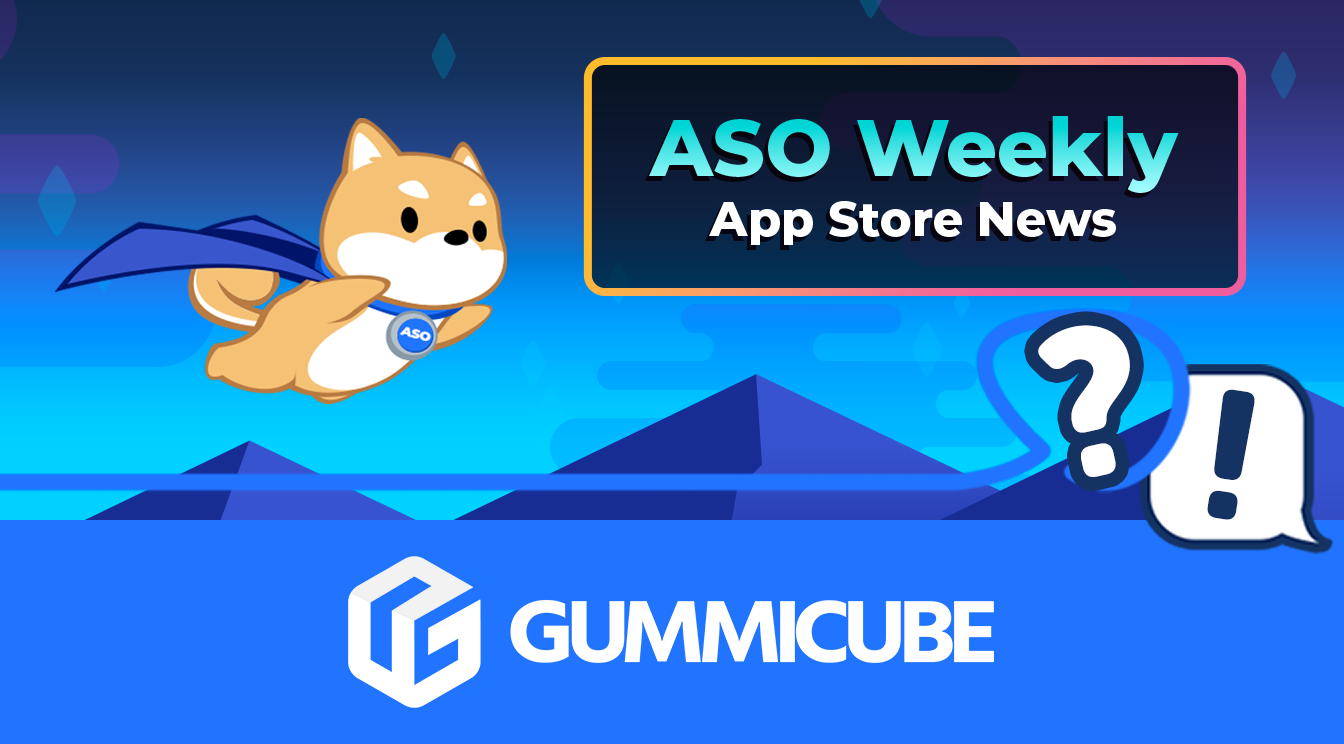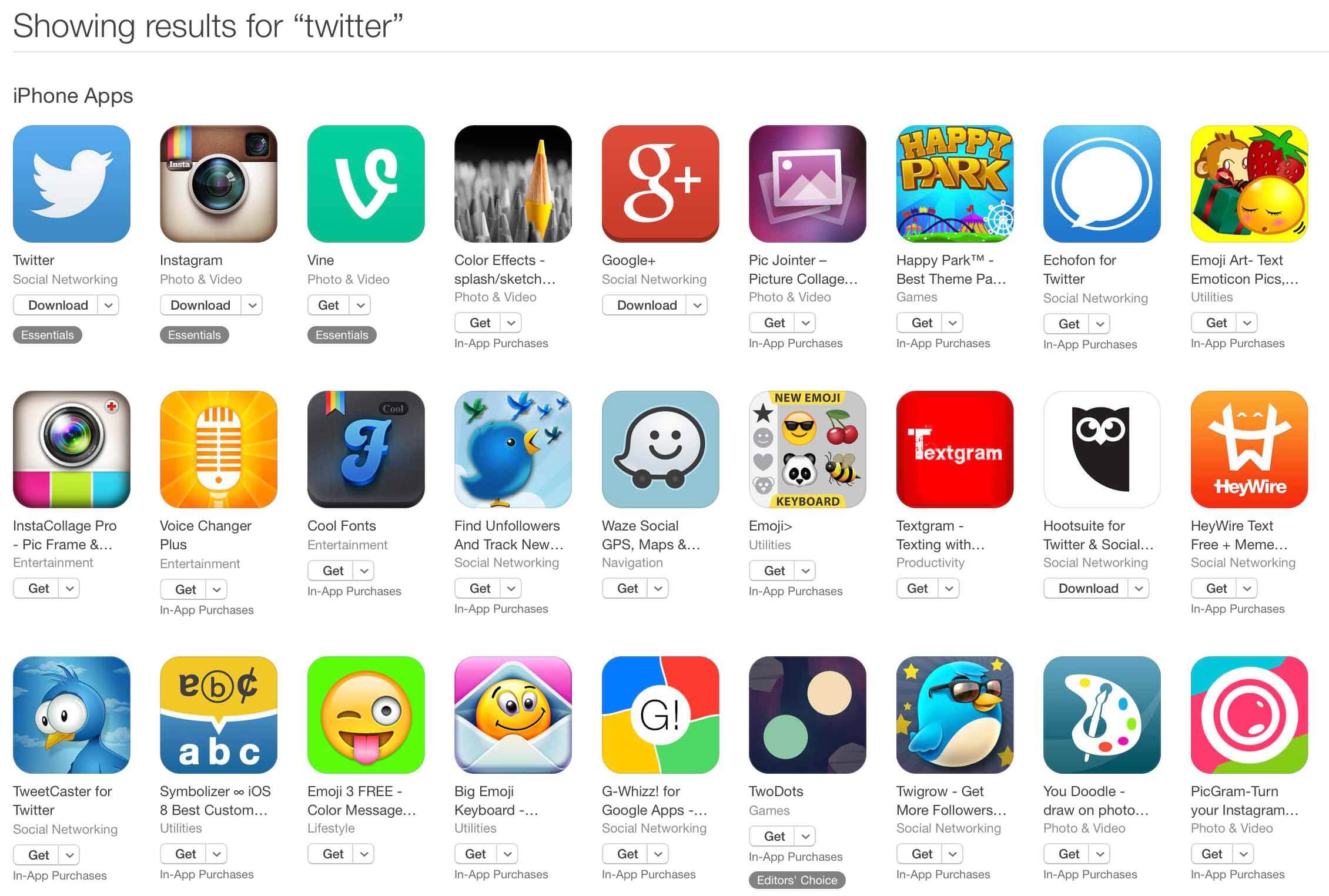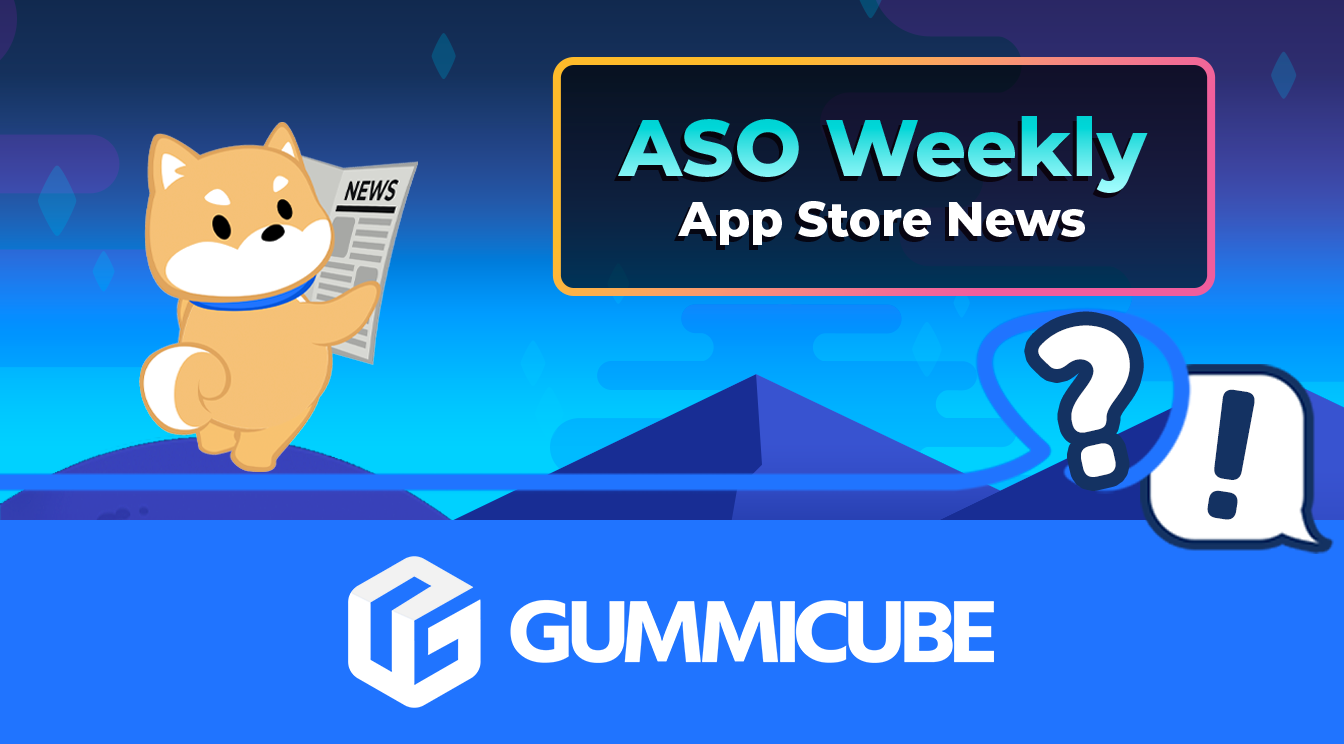
App Store News - Gambling Ads Nixed, New NFT & Crypto App Regulation
Posted on October 28th, 2022
Welcome to this week’s ASO Weekly - The App Store halts gambling ads amidst outcry and the Apple takes a bite out of NFT app sales.

As mobile app marketers know, much of Apple’s app store search and discovery data is hidden.
We know the popular opinion among mobile app developers, studios, agencies and marketers is that Apple app store search is broken. This post - from Ged of the Icon Factory and shared by Marco Arment of Tumblr, Instapaper and now Overcast fame - shares the sad state of discovery for app store users. An App’s Name is indexed for search, and is weighted more heavily than words used in the app store keywords field. The result is an app like “Happy Park Best Theme Park Game with Facebook and Twitter Friends” ranks 5th and 7th in my “Twitter” search results for device and desktop respectively. Instagram and G+ also in top 5.

Now, if the searcher were searching for Twitter’s app - that comes up first and she’s done. But if searchers are looking for apps related to Twitter and instead getting games and other social networks, it shouldn't take long for searchers to recognize 2-3 word phrases are required for receiving relevant results. According to Gummicube’s App Store Intelligence - using Datacube, we see that by a large margin in almost every category - trending searches are 2+ word phrases. In fact - today in the social networking category - we show a full 25 of the top 25 trending searches are for 2 word phrases. In many categories - 3 word phrases make up 2-3 of the 25 top trending phrases. In fact, 1 word searches are generally for brands (Facebook, Twitter, Skype).
Our data confirms this is what users do. It follows that the very best strategy for app store optimization then, is targeting relevant phrases. Many of the current keyword tools for app marketers fall very short. In fact - many are downright bad with the “Bad data in, Bad data out” model.
With an estimated 65 million downloads daily, $20b in app revenues in 2014 and well over 1m apps - long tail search in the app store is now a worthy topic. The top 4 publishers represent 70% of app installs.
The top app charts from 2013 and 2014 are almost identical (same apps, same publishers).
With the breaking apart of major apps into smaller apps - like Facebook messenger -
the top spots in the app store (overall) are now reserved for publishers who can pay their way (LTV > CPI) see Supercell or King, or publishers with a significant web presence (see Facebook).  You want to compete with this?
You want to compete with this?
The focus of modern mobile app marketers is targeting and ranking for as many relevant app store keyword phrases as possible, and identifying new channels to run user acquisition campaigns. Having access to app store data and not web data matters. Having access to tools that help you identify relevant keywords, relevant phrases, trending phrases, and the best combination of keywords to maximize the 100 characters for relevant phrases is a marketers best friend.
One Gummicube client was averaging 40 downloads a day when they came to us to help them manage their app optimization. After 9 months of engagement, the same app is averaging 5,000 downloads daily with $0 in ad spend or paid user acquisition. The strategy from the beginning was not to rank #1 for "messaging" or "text" - but rather to target an ultra-relevant group of 2-3 word phrases. Each month, the team would reevaluate the use of the 100 character keyword field, and re-target based on current trending search phrases. Today this app ranks for 149 one, two and three-word phrases:
For this app, ranking for 146 search terms, and ranking in the top 10 for 107 search terms meant the difference between 40 daily downloads and 5,000.
A monthly evaluation and optimization of targeted phrases based on category trending data is the best way to ensure coverage of the most common relevant phrase targets. The correct category and maximum coverage of relevant phrases could mean ranking for 30-40 relevant phrases for new apps. And as we can see - it is possible to rank for hundreds of relevant phrases with a sustained effort at reaching those searching for apps like yours. You can learn more about Gummicube Data, our App Store Optimization Services here. Want More Data-Driven, Mobile App Marketing Content?

Welcome to this week’s ASO Weekly - The App Store halts gambling ads amidst outcry and the Apple takes a bite out of NFT app sales.

Welcome to Gummicube’s ASO Top Trends Vol 3 – a quick, one-stop-shop for the latest developments in ASO.

App Growth Summit (AGS) in San Francisco is a once-a-year event where some of the biggest names in the app marketing and mobile marketing industry come together to share industry insights.